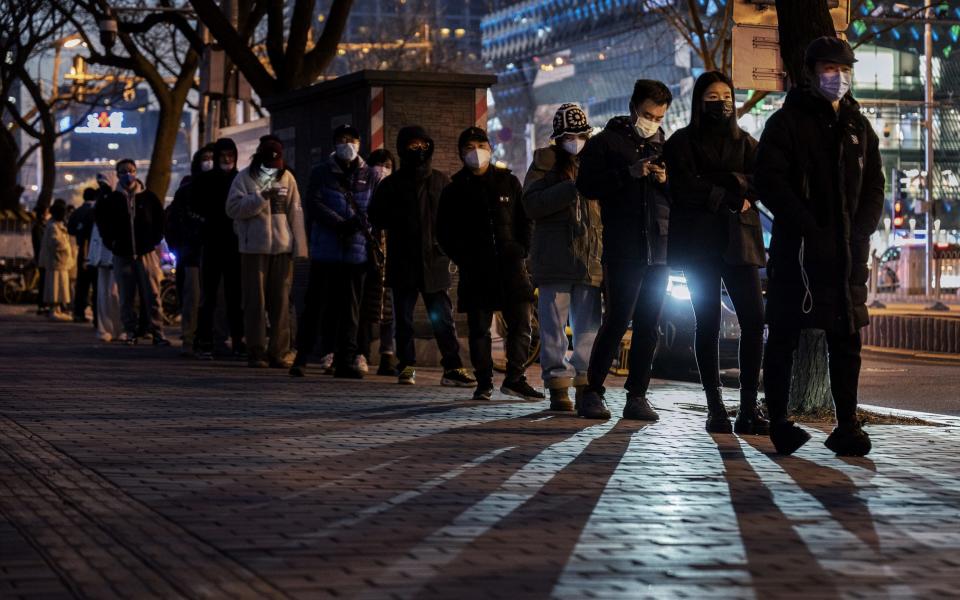China to downgrade Covid from a serious contagious disease to help relax restrictions

Beijing is considering downgrading the severity of Covid from a serious contagious disease, which could give authorities cover to further wind down the zero-Covid policy that sparked nationwide protests.
Conditions for re-classifying the disease were improving according to a state-controlled media outlet, often used as a barometer ahead of a more formal policy announcement.
Since January 2020, China has classified Covid as a Category B infectious disease but has managed it under Category A protocols, which give local authorities the power to put patients and their close contacts into quarantine and lock down affected regions.
Category A diseases in China include bubonic plague and cholera, while Sars, Aids and anthrax fall under Category B. Category C diseases include influenza, leprosy and mumps.
Covid-19 could be downgraded to Category B management or even Category C, an unnamed infectious disease expert told the authoritative business news outlet, Yicai.
It came as businesses reopened and testing requirements were relaxed in Beijing and other Chinese cities on Monday.
President Xi Jinping’s government may announce ten new easing measures as early as Wednesday, sources said on Monday, supplementing twenty unveiled in November that set off an initial loosening of rules in response to rare demonstrations.
In the capital, Beijing, where many businesses have fully reopened, commuters from Monday were no longer required to show a negative virus test taken within 48 hours to use public transport.
Financial hub Shanghai - which underwent a brutal two-month lockdown this year - was under the same rules, with residents able to enter outdoor venues such as parks and tourist attractions without a recent test.
Neighbouring Hangzhou went a step further, ending regular mass testing for its 10 million people, except for those living in or visiting nursing homes, schools and kindergartens.

In the northwestern city of Urumqi, where a fire that killed ten people became the catalyst for the recent anti-lockdown protests, supermarkets, hotels, restaurants and ski resorts reopened on Monday.
The city of more than four million in the far-western Xinjiang region endured one of China’s longest lockdowns, with some areas shut from August until November.
Authorities in the central city of Wuhan, where the coronavirus was first detected in late 2019, and Shandong province scrapped the testing requirement for public transport on Sunday.
And Zhengzhou - home to the world's largest iPhone factory - on Sunday said people would be allowed to enter public places, take public transport and enter their residential compounds without a 48-hour negative test result.
Chinese state media, which previously focused on highlighting the dangers of Covid, has shifted tone as measures have been relaxed.
Yicai on Sunday quoted an unnamed health expert arguing that officials should dial down strict virus rules. “Most infected people are asymptomatic... and the fatality rate is very low,” the expert said.
China’s central national health commission categorises infectious diseases based on how fatal and infectious they are.
Chinese authorities on Monday reported 29,724 new domestic Covid cases.


